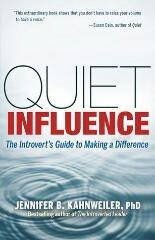If I were to write that C.S. Lewis is one of my favorite authors and that his writings have shaped my thinking about God and the nature of the world we live in, I wouldn't be saying anything that countless others haven't already said. But how did C.S. Lewis become so popular? How did he become a voice that speaks into the lives of so many people about the Christian faith for so many years after his death? This year marks the 50th anniversary of the death of C.S. Lewis, and Alister McGrath has given us a compelling narrative and rare look into the life of Lewis in C.S. LEWIS: A LIFE.
My first introduction to C.S. Lewis was in college when I was required to read
The Lion, the Witch, and the Wardrobe for a class I was taking. I enjoyed the story, but it would be a few more years before I really grew to appreciate the story and the series as a whole. Lewis became a favorite of mine when I decided to pick up
Mere Christianity a few years ago. I love to think, and Lewis got me to thinking. The book made so much sense of so many things that I felt like I wanted to say myself. As I continued to read more and more of Lewis’ works, I always felt like I was reading the works of someone who understood the way my mind worked. I was intrigued when I heard that Lewis came to faith as a result of a conversation with J.R.R. Tolkien. All of this combined to make Lewis a compelling figure in my mind. Where did all this come from?
That’s where McGrath’s book comes in. McGrath takes us on a journey from Lewis’ early beginnings in Ireland, through his development as an Oxford scholar, to his embracing of theism and then Christianity, to his rise as an apologist and author of popular works, to his complicated relationship with Joy Davidman, and finally to his death. Throughout, McGrath carefully intersperses where Lewis’ major works fall into the timeline of his life, including the possible driving forces and the implications of each. The book almost reads like a novel, revealing the hinge moments in the life of Lewis that shaped him into the man who would write such great Christian works, such as
The Screwtape Letters, The Problem of Pain, and
The Ransom Trilogy.
One of the aspects of the book that I loved was the period of time focused on Lewis’ career at Oxford. I always knew that Lewis taught at Oxford, but McGrath’s book shows how foundational this was to Lewis’ life and thought. I also loved reading about Lewis’ relationship with Tolkien and his part in the success of Tolkien’s most famous work,
The Lord of the Rings. I was left saddened however by the turn in Lewis’ and Tolkien’s relationship in the end.
McGrath’s book cleared up so much that I didn’t know or realize about Joy Davidman and Lewis’ complicated relationship with her. Joy Davidman was an interesting character in Lewis’ life, and I didn’t realize the impact she would have on him and the motivations that drove her in the beginning. I loved McGrath’s comparison between the similarities, yet different perspectives, of
The Problem of Pain and
A Grief of Observed.
McGrath clearly did an extensive amount of research to write this book, reading everything that Lewis had written, including all of his surviving letters, in chronological order. McGrath compiled a history of Lewis’ life based on all the evidence he could find, and one of the interesting aspects of the book is his critical look at the dating of Lewis’ conversion, challenging Lewis’ own dating for it. I have to say it seemed convincing.
C.S. LEWIS: A LIFE is without question the best book I’ve read so far this year, driving me to want to go back and read Lewis’ works, including the ones I haven’t read. If you read this book, I think you’ll be pulled that way as well. Throughout the narrative, we meet so many people who impacted Lewis’ life: his father, his brother Warnie, the mother of a childhood friend Mrs. Moore, Owen Barfield, Arthur Greeves, Tokien, Davidman, and so many others. Therefore, if I had to some up the impression that I came away with from the book, I would have to say McGrath’s book is about the relationships in Lewis’ life and how they shaped him for better or worse. I can’t recommend McGrath’s biography of C.S. Lewis enough.
Review copy provided by Tyndale House Publishers
Photo Credit: Tyndale House












